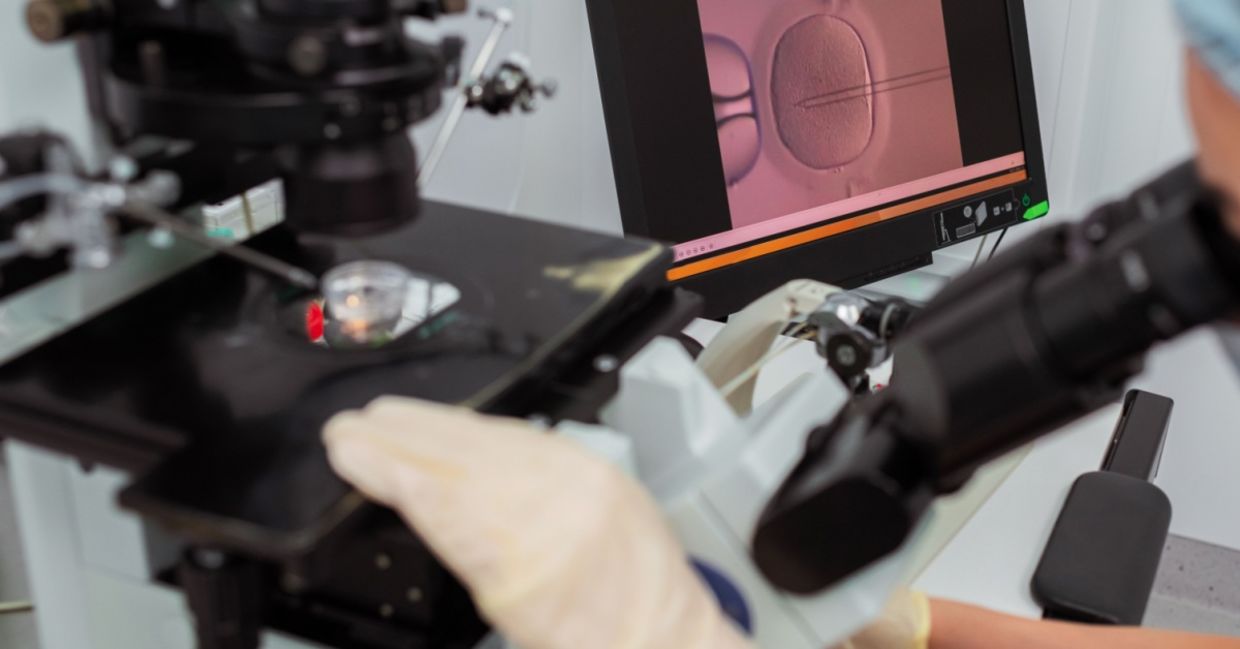
(Yashkin Ilya / Shutterstock.com)
A breakthrough in IVF treatment has been made by Tel Aviv-based startup AIVF, NoCamels reports. This innovation isn’t just about numbers and algorithms; it’s about the real, human desire to create families. The work is driven by the profound impact it has on people’s lives, offering new hope to couples worldwide who dream of becoming parents.
Pioneering AI in embryo selection
When co-founders Daniella Gilboa and Daniel Seidman embarked on their journey to revolutionize IVF treatments, they brought with them a wealth of personal and professional experiences that shaped their vision. Gilboa, a dedicated embryologist lives and breathes the delicate science of embryo development. Seidman, a renowned reproductive medicine expert, balances his time between his busy practice and his role as the chief medical officer at AIVF. Their combined expertise led to the creation of EMA, an AI platform that promises to transform the landscape of fertility treatments.
"I live and breathe embryos,” Gilboa told NoCamels, adding, “We started this to do better embryo evaluation, better embryo selection and really take out the human subjectivity. Once you’re able to do this, you can really optimize success rates and the treatments, and this is the way to democratize IVF globally.”
Israel, recognized as the global leader in IVF procedures, conducted almost twice the number of IVF cycles in 2018 compared to the next highest country, Japan, according to the US Department of Health. Given Israel's innovative stance in IVF, it is fitting that significant advancements in this field are emerging from Israeli technology. While the global fertility rate has declined to an average of 2.3 births per woman, Israel stands out as the only developed nation with an average of 2.9 births per woman.
The role of AI in IVF
The core innovation of AIVF is the use of AI to enhance embryo evaluation and selection, reducing human subjectivity and optimizing success rates. "We started this to do better embryo evaluation, better embryo selection and really take out the human subjectivity," Gilboa explains. The AI platform, named EMA, is trained on extensive biological data to understand developmental biology and detect crucial milestones in embryo development.
EMA monitors the embryo from fertilization (Day Zero) to Day 5 or 6, just before it is ready for implantation. The AI then assigns a score indicating the likelihood of a successful pregnancy. This score aids medical professionals in making informed decisions about which embryo to implant and helps patients understand their IVF journey.
One of the significant advantages of using AI in IVF is the standardization it brings to the process of selecting viable embryos. According to Gilboa, the quality of IVF services varies widely across clinics globally, and AI can help bridge this gap.
Global impact and future prospects
AIVF's EMA platform has made a substantial impact, increasing the success rates of IVF treatments and significantly reducing failed pregnancies. The company's technology is now commercially available in countries like Australia, Brazil, South Korea, and several European nations, with plans to launch in the US soon.
Gilboa emphasizes that AI is becoming an integral part of medical practice, enhancing the speed and accuracy of treatments and helping physicians make better decisions. "And this is what we do in IVF," she concludes. As AI continues to advance, its role in reproductive medicine is poised to grow, offering hope and improved outcomes for many seeking IVF treatments.
YOU MIGHT ALSO LIKE:
Can Artificial Intelligence Help Boost Wellbeing?
AI Lifeguard System Prevents Drowning
AI Gives a Voice for People With Speech Limitations







